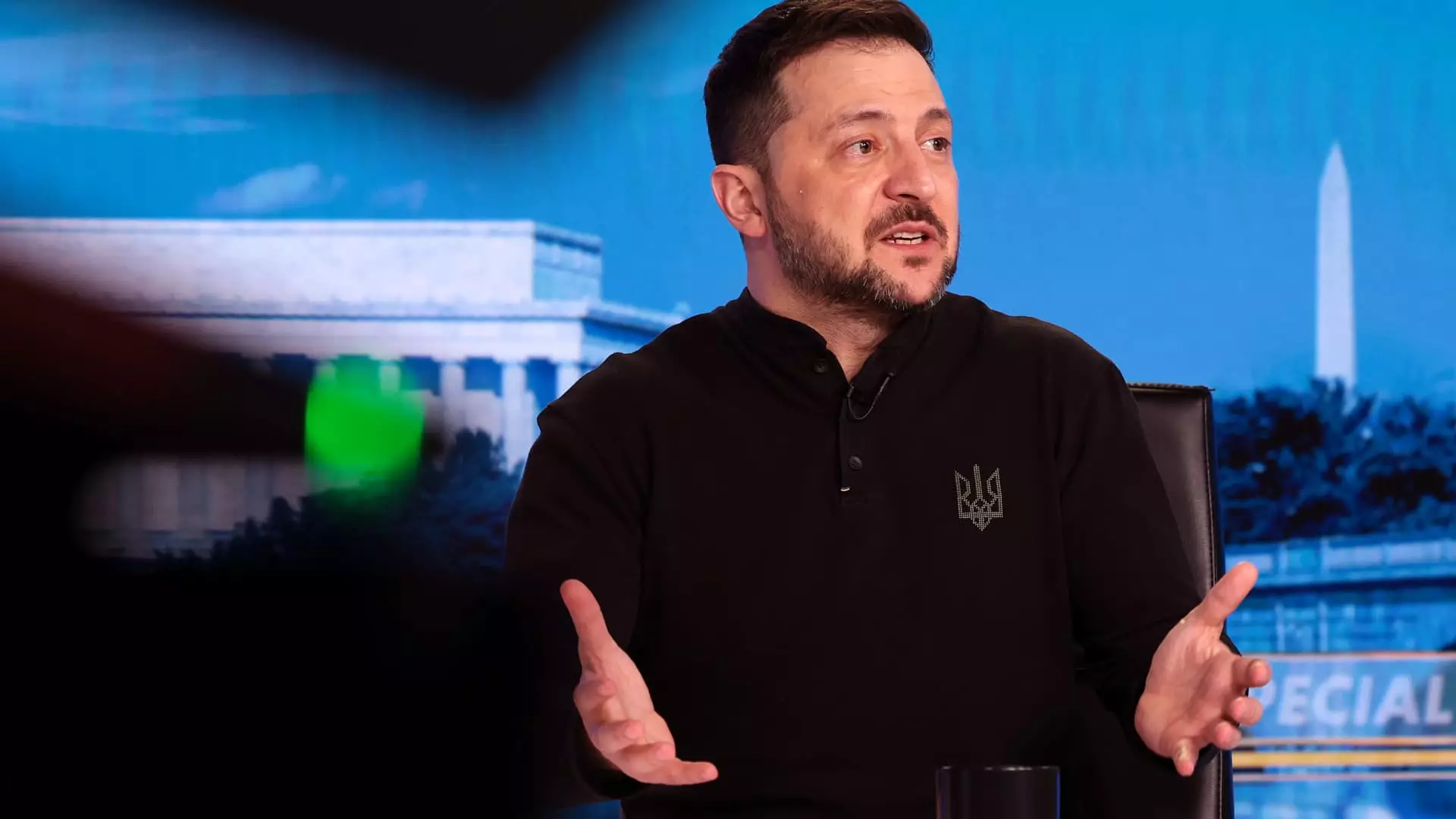In the political arena, personal interactions often bear significant repercussions, particularly when delicate international relationships are at stake. Recently, Ukrainian President Volodymyr Zelenskyy found himself at the center of a contentious meeting in the Oval Office with U.S. leaders, including former President Donald Trump and Vice President JD Vance. This encounter highlighted not only diplomatic frictions but also the existential stakes for Ukraine amid its ongoing conflict with Russia. When asked about the incident, Zelenskyy firmly dismissed any notion of apologizing to Trump, despite the former president’s public statements accusing him of disrespect. Instead, the Ukrainian leader pointed out the detrimental nature of such spats, emphasizing the need for unity at a time when Ukraine faces overwhelming external pressures.
The stakes for Ukraine are considerably high, particularly regarding military and financial support from the United States. Zelenskyy expressed profound concern over the potential cessation of aid, suggesting that such a move would severely hinder Ukraine’s ability to defend against the aggressive tactics employed by Russian forces. He returned to the theme of mutual support, reinforcing the sentiment that American assistance has been crucial for Ukrainian survival during the protracted invasion. By acknowledging the assistance provided by Congress and the American public, Zelenskyy portrayed an image of gratitude even amidst rising tensions—a strategy aimed at preserving strong ties with a key ally.
During the White House meeting, the discussion also took a contentious turn over the nature of achieving peace with Russia. JD Vance’s assertion that a diplomatic resolution was attainable was met with staunch resistance from Zelenskyy, who insisted that prior agreements with Russian President Vladimir Putin had been consistently violated. This moment underscored the prevailing skepticism regarding diplomatic measures in the face of aggressive expansionism by Russia. Zelenskyy’s blunt commentary regarding Putin’s actions, including the violation of human rights and the absence of good-faith negotiations, highlights an important aspect of contemporary international relations: the challenge of reconciling diplomatic aspirations with the reality of authoritarianism.
Just hours after the meeting, the rhetoric escalated further as Trump criticized Zelenskyy for not publicly thanking him during their engagement. Trump insinuated that Zelenskyy’s lack of appreciation could jeopardize the lives of millions and potentially ignite global conflict if a peace accord was not reached. Such accusations arguably reflect a broader miscalculation of the geopolitical landscape—a misunderstanding of the intricacies of the Ukrainian plight and the moral imperatives surrounding it. This discord has raised questions not only about personal dynamics but also the already strained relationships between national leaderships, potentially complicating future negotiations and support mechanisms.
In the wake of this diplomatic debacle, support for Ukraine has not wavered among European allies. Comments from European leaders indicate a continued commitment to support Ukraine against Russian aggressions, highlighting an emerging consensus that Europe must play a more decisive role in regional security matters. EU officials have explicitly called for enhanced assistance to Ukraine, emphasizing that this is no longer merely a bilateral issue between the U.S. and Ukraine but rather a concern that requires a unified response from the free world. With calls for “new leadership” in the context of global alliances, it’s evident that the political landscape is evolving, and Europe is bracing itself for an increased responsibility in bolstering Ukrainian defenses.
The recent clash between Zelenskyy and U.S. political figures serves as a crucial reminder of the sensitive and often contentious nature of international diplomacy. In an environment where mistrust and competition are prevalent, the need for open dialogue becomes even more critical. The situation presents a dual challenge—maintaining the essential support Ukraine requires for its defense while navigating the fraught political landscape of U.S. domestic politics. It is clear that the future of Ukraine’s defense strategy will depend not only on continued international support but also on the ability of leaders to rise above personal conflicts and focus on the larger imperative of peace and stability in the region.


Leave a Reply